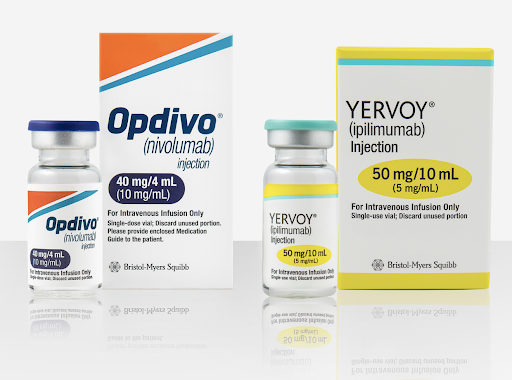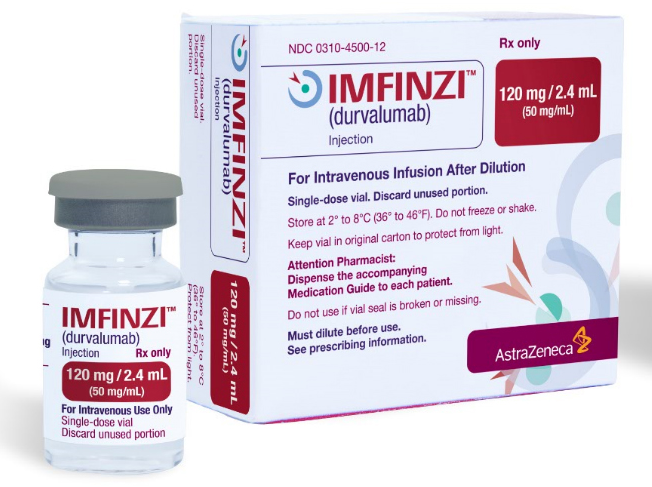Category: Mesothelioma

Mesothelioma Treatments Make Progress Through Clinical Trials
Over the years we have had the privilege of seeing people diagnosed with malignant mesothelioma in different stages of their journey. Malignant mesothelioma is a rare cancer that is difficult to diagnose and to treat. Treatment options are limited and long term quality survival is the goal with ultimately leading to a cure. Always recommended has been getting treatment at a Mesothelioma Center of Excellence and participating in clinical trials.
Treatment and research has been ongoing, but for most, painfully slow with limited successes.
The Food and Drug Administration recently approved the use of two immunotherapy drugs for the treatment of inoperable malignant pleural mesothelioma. The drugs, Opdivo (Nivolumab) and Yervoy (Ipillmumbab), were approved by the FDA in less than six weeks. The six weeks timeline was following the submission of a new Biological License Application under the FDA’s real time Oncology Review process.
These successes do not come overnight. They come in increments. They are like building blocks with this success building on the next. Not many among us are research scientists or are gifted with the knowledge and drive to conduct a clinical trial when it succeeds, but more importantly when it doesn’t. To continue with the next idea and not give up takes committed leaders and a very supportive community.
The mesothelioma community worldwide is small. For the successful clinical trial that led to the FDA approval in record time of this new treatment option, recruitment was started in September of 2016. There were 109 study locations worldwide, enrolling 606 patients. This is a collaborative effort that yielded an important treatment option for people and families that are dealing with this largely preventable rare cancer.
To participate in a clinical trial is also a courageous thing to do. For many, the results may not come in time to help them or improve their quality of life, but will help others in the future.
These numbers do not tell the story of the lives this research will affect. We have the privilege of being in a position to see the results and to put faces to the treatment options that are now being offered. The results are all scientifically quantitated and verified through the scientific process.
As we continue to see people and families affected by malignant pleural mesothelioma, we will continue to put faces and stories to their particular journey. We also remember the many brave people that entered into these clinical trials and are not able to see the success in which they had a vital part in. With this new option hopefully patients and their families will be able to enjoy quality time while further research can continue toward the cure.

First New Drug Treatment for Mesothelioma Approved by FDA in Over 16 Years
For the first time in 16 years, the U.S. Food & Drug Administration has approved a new drug combination specifically for the treatment of malignant pleural mesothelioma. The two drugs, which are to be used together when surgery is not an option, are Opdivo (nivolumab) and Yervoy (ipilimumab).
About 20,000 Americans are diagnosed with malignant pleural mesothelioma each year according to the FDA – the vast majority of which have tumors at diagnosis that cannot be removed by surgery. The devastating cancer is caused by the inhalation of asbestos fibers, often found in manufacturing, construction, mining, military, transportation and other common settings.
When combined, Opdivo and Yervoy improve T-cell function to reduce growth of the patient’s tumor.
“In 2004, FDA approved pemetrexed in combination with cisplatin for this indication, and now patients have an important, additional treatment option after more than a decade with only one FDA-approved drug regimen,” said Dr. Richard Pazdur, director of the FDA’s Oncology Center of Excellence.
The drug therapy was approved after a clinical trial involving over 600 participants with unresectable malignant pleural mesothelioma that had yet to be treated. Patients received doses of both Opdivo and Yervoy every few weeks for up to two years before results were measured.
“Approval of nivolumab plus ipilimumab provides a new treatment that has demonstrated an improvement in overall survival for patients with malignant pleural mesothelioma,” said Dr. Pazdur.
Those who took the new combination survived an average of 18.1 months from diagnosis, compared to 14.1 months for those who received standard chemotherapy.
It can be difficult to navigate the many treatment and legal options presented to mesothelioma patients after they are diagnosed. The experts at the Mesothelioma Help Organization are here to help you make sense of it – reach out today.

How Clinical Trials Play a Role in Finding Cures and Treatments for Mesothelioma
Science is advanced through research, and the research process begins with clinical trials. Many us of have grown more familiar with the clinical trial process with the search for a vaccine for COVID-19. As the search continues for a cure for malignant mesothelioma, it is imperative that people involved in the mesothelioma community continue to be aware of what scientists are researching at this point for potential cures and quality life-extending treatments.
Chemotherapy has been the standard of care for patients with malignant pleural mesothelioma since it was approved by the FDA in 2004. Scientists continue to discover what the best methods to administer chemotherapy for malignant mesothelioma are. The usual route of administration is intravenously every three weeks for a 6 cycle treatment. In general, chemotherapy can be absorbed by mouth, intravenously, intramuscularly, subcutaneously, intraperitoneally directly into the abdomen, intravesicular directly into the bladder, intrapleurally into the pleural space, through implantable devices, topically, and intra-arterially. Intra-arterial chemotherapy is given directly into the artery that is supplying the blood to the tumor. It is done through angiography a special x-ray using dye to see the blood vessels.
NCT02611037 is a clinical trial that is currently being offered at the Lee Moffitt Center in Tampa, Florida. This is a unique trial that offers chemotherapy through a different approach by administering the chemotherapy intra-arterially, directly into the artery that is supplying the blood to the tumor. The chemotherapy is administered by angiography using a special x-ray dye to see the blood vessels.
One of the main challenges of treating malignant pleural mesothelioma is the location of the disease within the human body. The purpose of this study is to deliver transarterial chemoperfusion treatment with cisplatin, methotrexate, and gemcitabine in a safe and effective manner. This procedure is performed by an interventional radiologist, who injects one third of the drug into the internal mammary artery which supplies the blood supply to the pleura. The other two thirds of the drug are then injected into the descending aorta. This area of the body also has blood vessels that supply blood to the pleura. The procedure usually takes one hour and is followed by a one hour post-recovery period before patients are discharged.
In this study, patients undergo angiogram and transarterial chemo administration treatment every 4 weeks (3-6 weeks interval allowed) with cisplatin, methotrexate, and gemcitabine. The medications are administered into the thoracic aorta and/or the internal mammary artery.
Initial findings are promising. This treatment is safe and effective and may improve quality of life for patients who may not have many other options. For more information on the NCT02611037 trial, please go to www.clinicaltrials.gov or talk to your mesothelioma team.

New Dual-Immunotherapy Regimen Proves Effective for Mesothelioma Patients in Phase 3 Clinical Trial
Dr. Paul Baas of the Netherlands Cancer Institute and the University of Leiden in Amsterdam recently presented on the CheckMate 743 study at the International Association for the Study of Lung Cancer World Conference. The randomized phase III Checkmate 743 clinical trial prescribed mesothelioma patients who were not candidates for surgery with a combination of first-line nivolumab and ipilimumab.
The promising results yielded a four-month improvement in median overall survival for patients who received the new dual-immunotherapy regimen as compared with those who had received platinum-based chemotherapy, the current double-chemotherapy standard of care for mesothelioma.
“This is the first positive randomized trial of dual immunotherapy in first-line treatment of patients with unresectable MPM,” Dr. Bass noted. “And therefore nivolumab plus ipilimumab should be considered as a new standard of care.”
The patients featured in the phase III trial were randomly assigned treatment plans consisting of either a maximum of two years of nivolumab and ipilimumab, or six cycles of pemetrexed alongside cisplatin or carboplatin.
Results revealed that the treatment plan consisting of nivolumab and ipilimumab yielded comparable efficacy outcomes to chemotherapy for progression-free survival and objective response rate, but was significantly more successful than chemotherapy when it came to the duration of response (DOR). The DOR for the dual-immunotherapy treatment reached 11.0 months whereas the DOR for chemotherapy reached only 6.7 months.
“In the ipi/nivo survival curve, going out to 36 months, we see a plateau at about 30%,… suggesting, as we’ve seen with other trials of immunotherapy, there is a degree of durability that is way beyond what we’ve seen previously with chemotherapy. And this, indeed, may have been driven by maintenance nivolumab,” explained Dr. Dean Fennell of the Cancer Research UK Centre Leicester, University of Leicester and University Hospitals of Leicester NHS Trust.
Our medical experts can help you make sense of your treatment options and how to move forward. Reach out today.

Clinical Trial of Imfinzi (Durvalumab) in Conjunction with Chemotherapy Yields Significantly Longer Survival Time for Patients Diagnosed with Malignant Pleural Mesothelioma
Immuno-Oncology News recently published results of a Phase 2 clinical trial of the immuno-checkpoint inhibitor Imfinzi (durvalumab) for patients diagnosed with malignant pleural mesothelioma.
The PrECOG cancer research group tested the effects of pairing Imfinzi, an AstraZeneca drug that blocks the activity of the PD-1 receptor in immune T-cells, with standard chemotherapy on a group of 55 individuals who had been recently diagnosed with inoperable malignant pleural mesothelioma. The PD-1/PD-L1 pathway affects inflammation, which causes pleural mesothelioma to develop at a faster rate.
The trial revealed that patients who took Imfinzi in addition to running out courses of standard chemotherapy (pemetrexed with cisplatin or carboplatin) survived for an average of 20.4 months, whereas patients who were given only standard chemotherapy lived for an average of 12.1 months. 81.8 percent of participants were male, their median age was 68, and three-quarters of them had been diagnosed with the epithelioid cancer subtype of malignant pleural mesothelioma.
“[Imfinzi] plus standard chemotherapy delivered a promising median overall survival rate for patients with previously untreated, inoperable malignant pleural mesothelioma,” affirmed Dr. Patrick Forde, director of the Kimmel Center’s thoracic cancer clinical research program, in a news release from the American Society of Clinical Oncology.
AstraZeneca, PrECOG, and the University of Sydney have plans to enroll participants who have been diagnosed with previously untreated, inoperable malignant pleural mesothelioma in a Phase 3 trial in Australia and the United States in September. More details about the upcoming clinical trial can be found here.
If you or a loved one has been diagnosed with mesothelioma, reach out today for a free consultation. Our experts can assist you with medical resources as well as options for compensation from those responsible.
Free Mesothelioma Patient & Treatment Guide
We’d like to offer you our in-depth guide, “A Patient’s Guide to Mesothelioma,” absolutely free of charge.
It contains a wealth of information and resources to help you better understand the condition, choose (and afford) appropriate treatment, and exercise your legal right to compensation.
Download Now